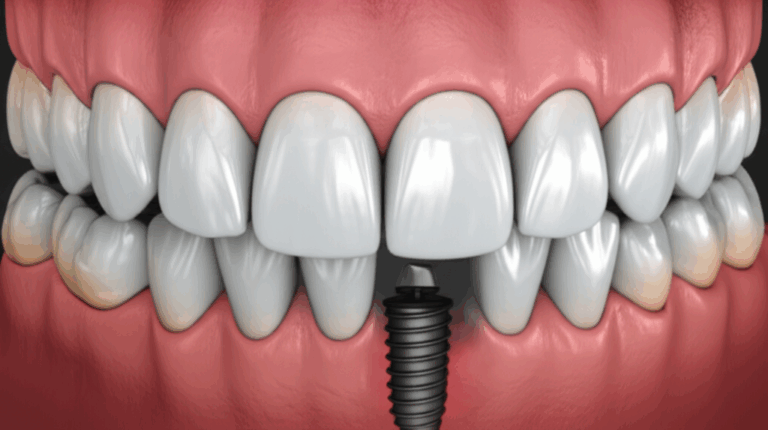
How Reliable Are Dental Implants? My Honest, Data-Driven Guide to Lifespan, Success Rates, and What You Can Expect
Table of Contents
1. Introduction: Tackling the Big Question of Dental Implant Reliability
If you’re wondering if dental implants really work and if you can trust them, you’re not the only one—I had the same worries when I first started thinking about it. I remember sitting in a dentist’s chair, feeling unsure about the idea. Reliability, to me, meant more than having a tooth that just sits there. I wanted something I could eat with, talk with, even laugh with, and not be embarrassed or worried.
So, if you’re looking into this, I’m guessing you care about more than just ads. You want honest facts. You want to know how long implants last, how often they have problems, and what you can do to make them work better. That’s the stuff I’ll talk about here. Over time, I picked up a lot—part from my own story, part from digging into studies, and part from chatting with others and their dentists.
2. The Impressive Track Record: What the Numbers Say About Dental Implant Success
To be honest—the first time I heard a dentist say implants had a 95–98% success rate, I thought it sounded a bit too good to believe. But after checking study after study and talking to people who do these every day, those numbers are real.
Dental Implant Success Rates: Short and Long-Term
Breakdown:
- First Year: Most studies say there’s a 95-98% chance the implant will stay in place after surgery. This is mostly because of something called osseointegration—basically, the implant sticking to your own bone. If you’re healthy, don’t smoke, and listen to instructions, those numbers are in your favor.
- After 5 Years: Even after five years of everyday life, between 95-97% of implants are still doing fine. This gave me a lot of comfort, too.
- 10-20+ Years: If you care about the long run, like me, the numbers drop a bit, but 90-95% are still going after ten years. Push it to 15-20 years, and you see about 80–90% last or more, especially if you look after them.
All of this matters because implants are not just a quick fix—they’re supposed to become part of you. Compared to bridges and dentures that need fixing or adjusting, implants (if you’re a good fit for them) are much more like your real teeth.
Lifespan: How Long Do Dental Implants Really Last?
Are dental implants “forever”? Not always. Dentists sometimes say 10-15 years to be careful, but lots of studies—and even patient stories—show many can easily hit 20 years or more. I even met people who’ve had theirs for 25 years without a problem.
I learned (and my dentist confirmed) that an implant can last your whole life—if you do your part. That means going for regular checkups, cleaning your teeth well, and keeping healthy. I see my implant sort of like a good car. If you look after it, it lasts a really long time.
3. Why Dental Implants Fail: My Experience With Causes and Risk Factors
Here’s the plain truth: even with great odds, no dental work is perfect 100% of the time. I’ve seen a few people deal with an implant not working out—every case is a good lesson.
Early Failure: What Can Go Wrong Right Away
Most problems show up early, usually in the first year. Here are some reasons:
- Weak or Thin Bone: I know this one from my own story. My jaw wasn’t strong enough, so I had to get extra bone put in before my implant. It’s like making sure your house has a sturdy base before building.
- Infection: Just like with any surgery, there’s the chance of infection. My doctor gave me clear directions to lower that risk.
- Doctor Mistakes: Skill matters a lot. Get someone who really knows implants.
- Smoking and Health Problems: I’ll talk about this again soon, but smoking and some health conditions slow your healing way down.
Late Failure: Issues That Pop Up Over Time
Some implants have problems years later. Usually, it’s either:
- Gum Infection Around the Implant: This is gum trouble that hits the bone around the implant. Not cleaning teeth well and skipping dental visits are often to blame.
- Breaks or Bumps: Implants are tough, but nothing is unbreakable. If you bite something really hard or get hit, things can go wrong.
For example, I once knew someone who lost an implant after ten years, just because they had a bad fall on their bike. Just bad luck—not a problem with the implant itself.
Key Risk Factors: Who Is Most at Risk?
Some things make implants less likely to work. Learning these helped me make smarter choices.
- Smoking: This is a big one. Smokers have about three times the chance of having an implant fail. I quit before my surgery, and I’m glad I did.
- Diabetes and Medical Problems: Uncontrolled diabetes, immune diseases, and weak bones all make healing tough. I worked hard to keep my blood sugar good before getting my implant.
- Grinding Your Teeth: I didn’t even know I was grinding teeth until my dentist found signs of damage. Grinding makes it easier for an implant to loosen or break. I started using a mouth guard at night because of this.
- Ongoing Gum Trouble: If you’ve had gum disease, you need to be extra careful. My dentist checked my gums very closely first.
What Happens If an Implant Fails?
If an implant doesn’t work, it’s not the end of everything. Sometimes the dentist can put in a new one later. Sometimes it can be saved if you catch the problem early. My favorite tip: if you feel pain, swelling, or your implant is loose, don’t wait around—call your dentist right away.
4. Maximizing Dental Implant Reliability: What’s Actually In Your Control
Here’s some good news—a lot of things that help your implant work are up to you. Here’s what I learned and would tell anybody thinking of getting an implant.
Working With the Right Specialist
Not all dentists are the same with implants. I looked for a doctor who did lots of these, lots of good reviews, and kept up with new ways. Ask how many times they’ve done this surgery. Also ask about where they get the actual implant and crown made—labs like implant dental laboratory can make a difference in quality.
The Importance of Pre-Surgical Planning
Before I got my implant, my dentist used a 3D scan to figure out the best spot. For me, I also needed extra bone. Careful planning leads to better results. Some dentists use special 3D tech from digital dental lab partners for more accuracy these days. That extra detail really helped.
Keeping Your Mouth (and Implants) Healthy Long-Term
Brushing, flossing, and getting your teeth cleaned by the dentist on a regular basis are super important. My doctor switched me to a soft brush and gave me a mouthwash to help with bacteria. I go in for a cleaning every three months now, just to stay safe.
Managing Health Conditions and Habits
If you have diabetes, immune problems, or weak bones, keep them under control. Work with your family doctor too. And if you smoke, really consider quitting. I used patches and support from friends. It made a huge difference in healing and lower risk.
Extra Protection: Night Guards and Beyond
I never knew I grinded my teeth at night until my dentist told me. She suggested a custom night guard from night guard dental lab. It keeps my implant and my other teeth safe. If you grind, don’t skip this.
5. Dental Implants vs. Other Tooth Replacement Options: My Perspective
Before my implant, I tried both bridges and a partial denture. Here’s why I think implants are better—not only for me but for lots of people I know.
Implants Versus Bridges
Bridges looked easy—no surgery and quick. But, they use the teeth next to the missing tooth for support, and those teeth can wear out or get cavities. Implants stand alone like real teeth and help keep your jawbone strong, which bridges can’t do. Also, fixing bridges isn’t cheap and they don’t always last.
Implants Versus Dentures
Dentures were my least favorite—awkward, could be loose, and eating certain foods was tough. Implants feel much more like your own teeth and don’t shift around. If you need a whole row replaced, you can even look up arch dental lab style solutions for full comfort.
Why I Chose Implants and What I Tell Others
For me, implants were about living normally. I didn’t want to worry about my teeth moving or falling out in front of friends. I wanted to eat apples without worry. Even though they cost more at first, I see them as money well spent.
When looking at dental implant choices, think about your happiness not just now but years from now. Eating, talking, and smiling matter every day. In most cases, I would choose implants again.
6. Conclusion: Are Dental Implants Worth It? My Final Thoughts and Advice
Dental implants aren’t magic, but they’re the closest thing I’ve found to getting my real teeth back. The numbers—95–98% in the first year, 90–95% after ten years—show they work for most people who care for them. There are some risks, and not everyone is a good fit, but if you know the risks and control what you can (like brushing, quitting smoking, or picking a skilled dentist), dental implants really are worth it.
Are they reliable? With these numbers—and my own experience—I say yes. The big thing is to take care of them: listen to your dentist, stick to brushing and checkups, and get help if you feel something is wrong. Do that, and your implants should last for many years—maybe even your whole life.
If you want more info about similar options or fixing other dental problems, it’s worth reading more before you decide. Being informed helps you make choices you’ll feel good about—especially when it’s something as important as your smile.








